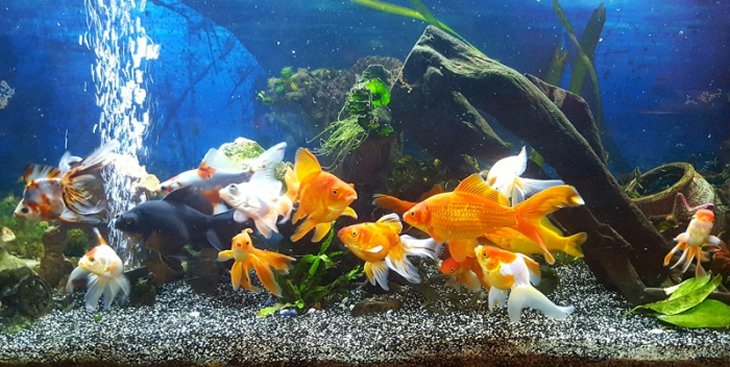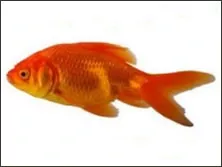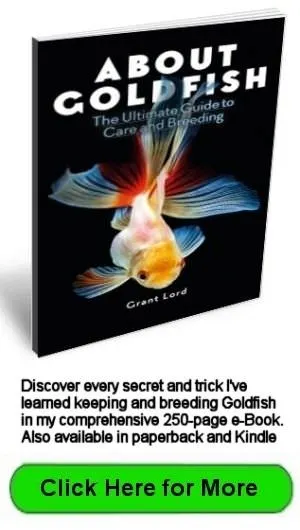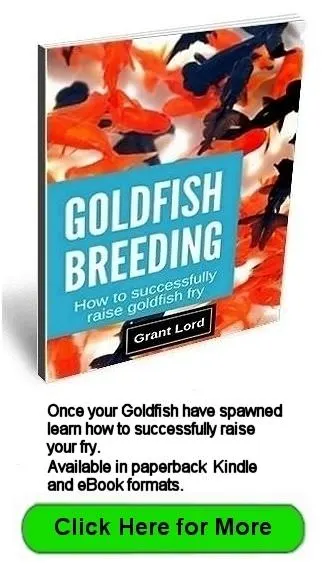All About Goldfish Keeping - Simple Rules For Success
Goldfish keeping is not hard. Discover how easy it is to have an aquarium or pond full of beautiful, thriving fish.

Last updated: 08-11-2024 by Grant Lord
Introduction to Goldfish keeping
This website contains everything you need about Goldfish keeping; feeding, breeding, diseases, varieties, aquariums, or ponds.
With over 50 years of experience, we can give you tips and secrets that experts and pet shop owners like to keep to themselves.
Most enthusiasts want to do more than just meet the basic needs of their fish. If you're like me, you want to keep them in the best possible environment so they live a long and comfortable life.
Goldfish are very easy to keep once their basic needs are met.
Few other fish species have the same vivid colors, spectacular finnage, and sometimes downright peculiar characteristics that some varieties exhibit, all at very reasonable prices.
And the longer you keep them, the more you realize they have personalities and memories far longer than 3 seconds!
The Five Simple Rules for Successful Goldfish Keeping
Following these five simple rules, you avoid the most common problems that new Goldfish keepers experience.
Rule One - Buy healthy Fish
Fish in pet stores tend to be kept in overcrowded, less-than-ideal conditions. A stressed fish is more at risk of succumbing to disease.
You must quarantine newly purchased fish for at least two weeks. Assume it has a disease; don't mix it with others until the quarantine period ends.
More on how to choose healthy Goldfish
Rule Two - Change Their Water Regularly
Even if you are running a filter, water quality drops over time because filters don't remove all toxins, such as nitrates, which are by-products of biological filtration.
Watch Goldfish visibly perk up after a water change.
They are big eaters and produce a lot of waste compared to the average tropical fish.
Rule Three - Feed a Variety Of Foods
Goldfish, especially the fancy varieties, require a balanced diet with lots of live food. If you only feed your fish dry prepared foods available from the pet shop, they won't grow as fast, have as much color, or live as long as those fed a balanced diet that includes live food.
Rule Four - Goldfish Need Room To Grow
Goldfish grow large in the right conditions. It is a myth that they only grow to the size of their containers. They usually don't grow very large in bowls because their water isn't changed often enough, they are fed poor-quality food, and the oxygen levels are low because of the bowl shape.
I have seen very large fish in a very small aquarium because the owner changed the water every few days and installed an aerator.
More on how much room Goldfish need
Rule Five - Don't Mix Varieties
By this, I mean don't mix telescopic-eyed Moors with single-tailed Comets. Guess who always gets to the food first?
Keep single-tailed varieties together. Keep twin-tailed varieties together and keep any varieties that don't have normal eyes, such as Moors, together.
This stops the more developed varieties from slowly starving in an aquarium with mixed varieties.
Careful Regular Observation Key to Goldfish Health
Carefully observe your fish often for changes in appearance or behavior.
By noticing small changes early, you can quickly sort out any problem before it becomes a significant health issue.
Breeding Goldfish
Humans have cultivated Goldfish for centuries. Starting with a drab silver-gray fish, the Chinese and then the Japanese transformed it through centuries of selective breeding into what it is today. They now come in many colors, fin variations, body shapes, and eye types that rival the most exotic tropical and marine fish for beauty or bizarre looks.
After keeping them successfully, thoughts turn to starting your own dynasty.
Breeding Goldfish is a fascinating (and often frustrating) hobby. But having an aquarium or pond full of healthy, thriving, high-quality fish you have raised from eggs is very rewarding.
Accurate Information and Common Myths
The Internet is a fantastic source of information. Answers are quickly provided to questions in one of the many search engines. Sometimes, this information isn't entirely as accurate as it could be.
Myth - Black Moor aren’t a strong variety.
Black Moor are one of the more robust fancy varieties.
A Black Moor is often added to an aquarium of single-tailed gold fish as a color contrast. It slowly starves to death because it can’t compete for food as well as the single-tailed fish due to body shape, poor eyesight, and twin tails.
Myth - Goldfish don't live for very long.
Goldfish are a long-living fish species. Pond fish should live 15+ years, and aquarium fish with filtration and regular water changes 10+ years.
Unfortunately, the Web makes anybody with a website an expert. Bad advice can go viral, spreading from site to site until it is taken as fact, especially now with the popularity of AI (artificial intelligence) growing.
But how can you tell fact from fiction? Easy, by making this site your first stop for information about Goldfish.
We only give advice based on many years of personal experience, and if you can't find what you are looking for, just ask.
Becoming a Goldfish Expert
I define an expert as someone who has made and learned from mistakes. I’ve made a lot of mistakes. You can learn from my mistakes when first starting out keeping Goldfish.
Everyone makes simple mistakes, but they often cause enthusiasts to give up fish keeping for good.
You can become an expert by using this website or the e-Book and learn secrets that professional breeders and pet shop owners don’t want you to know. Everything you need is right here:
- Know what to look for when buying fish
- Find out which varieties can be kept together and which are not compatible
- What is the most suitable aquarium
- Feed the best food and in the correct quantity
- Learn how to breed them, start your own dynasty
- Discover how to raise fry to adulthood; breeding them is the easy part
- Treat diseases; most are easily treated with cheap household chemicals.
Practical Advice and Resources
If you have just arrived home with a plastic bag full of fish and want to know where to start, go to the page that explains how to quarantine your fish before introducing them to their new home.
(You can quarantine new fish in their new home if there are no live plants, invertebrates, or existing fish in the aquarium).
Before un-bagging the fish, read my E-zine on how to safely un-bag fish, especially if the fish have traveled a long distance.
If you are researching before you purchase any fish, you are making an excellent start!
Go to the page on pre-purchase checks that discusses what to look for when purchasing, especially from a pet shop. It discusses compatibility issues and getting your precious cargo safely home.
If you want a brief overview of Goldfish, let’s start at the beginning with some basic Goldfish information.








